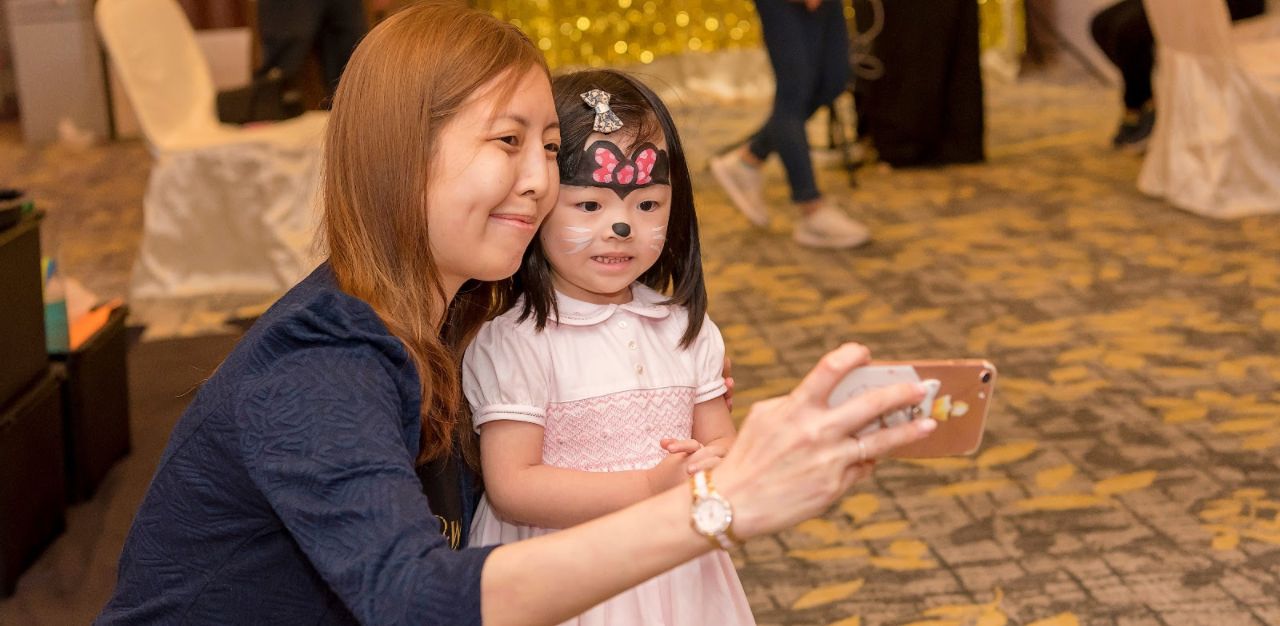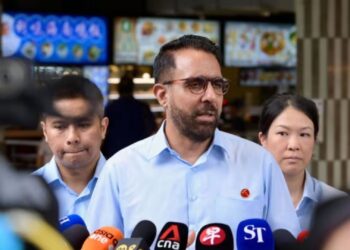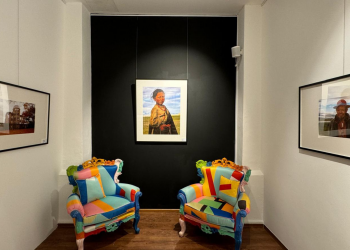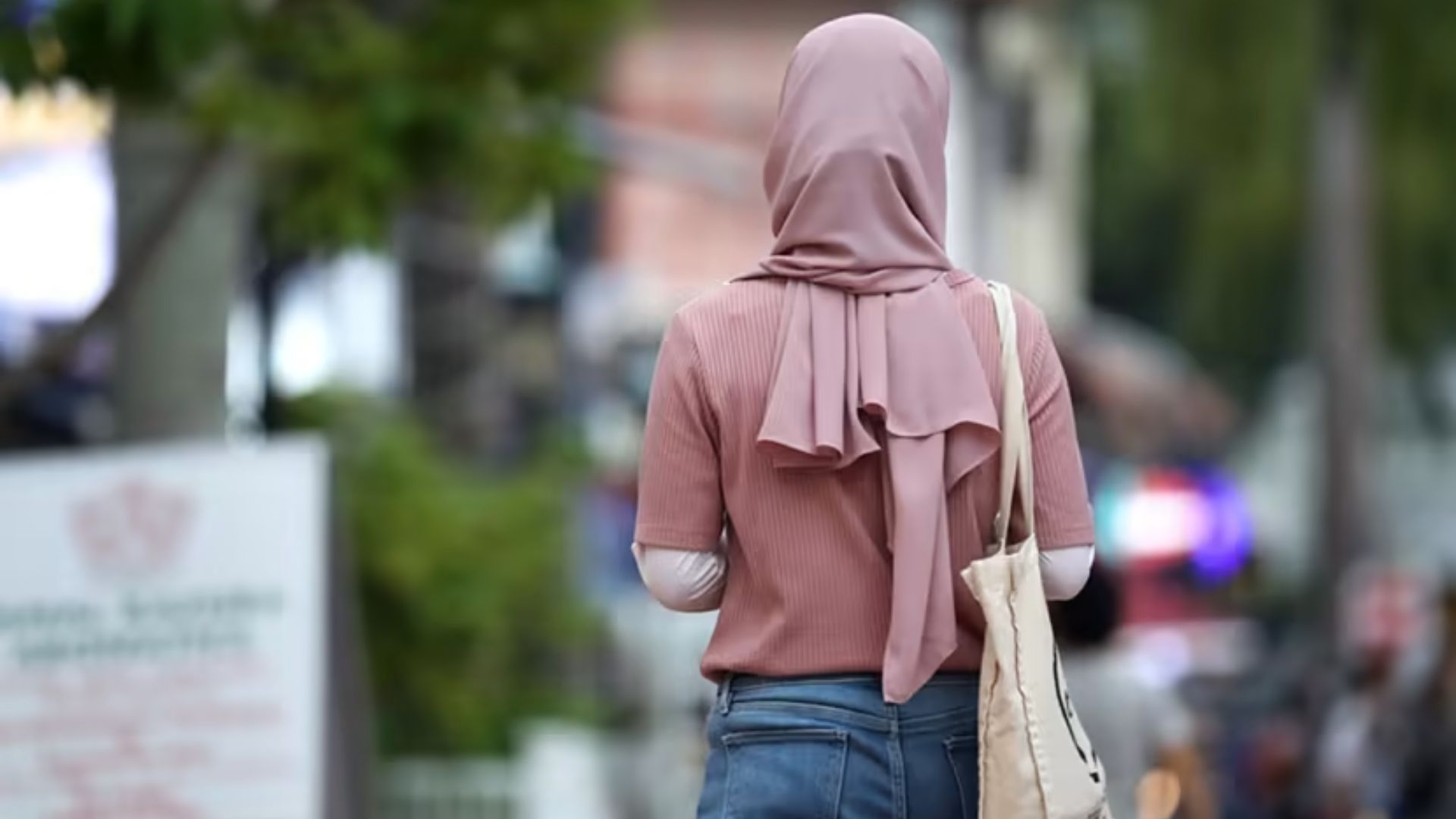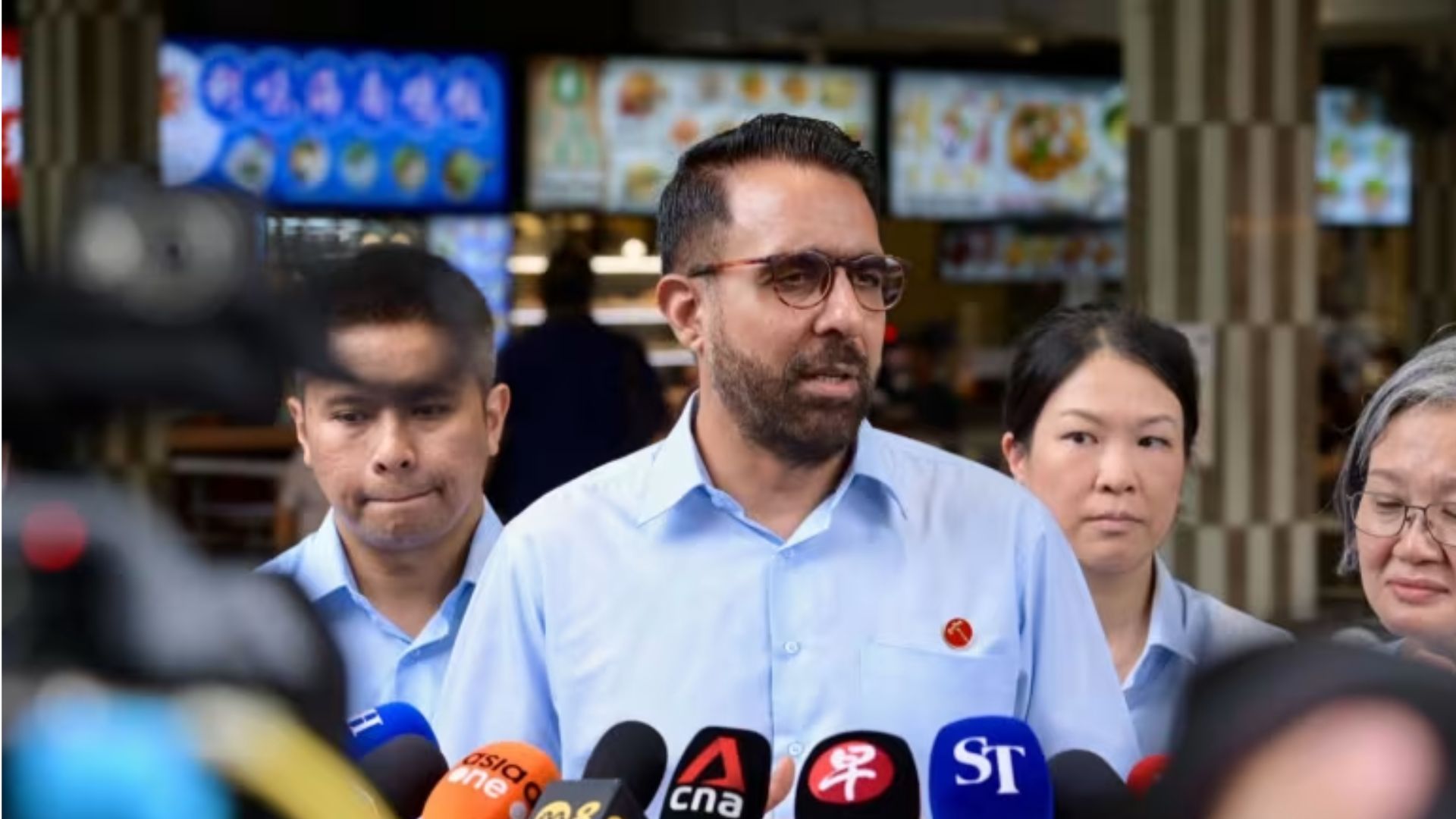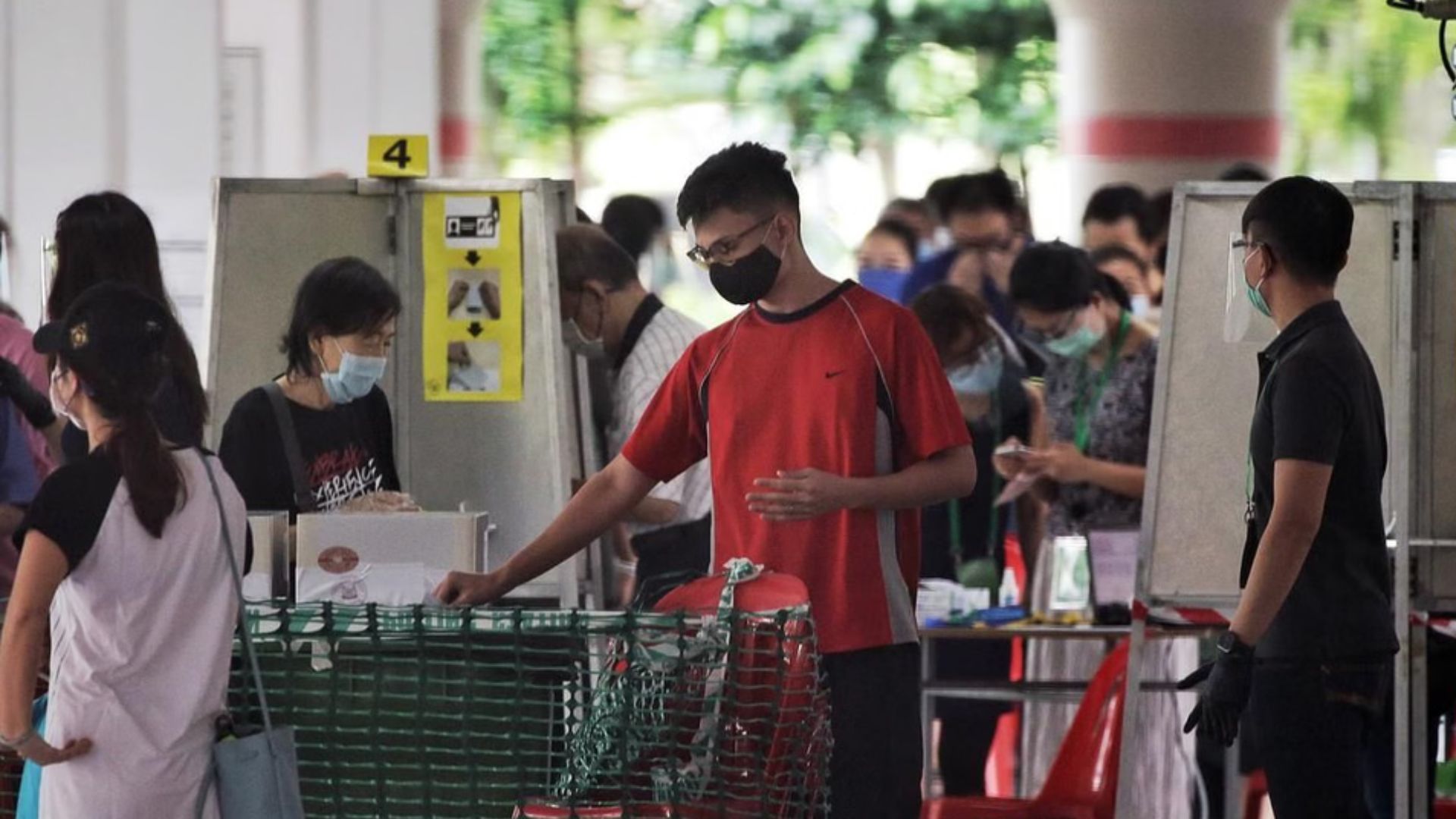Having wishes granted is said to be life-changing for children with critical illnesses. But does it truly make a difference?
The genie organisation, Make-A-Wish (MAW) Singapore, says it truly does. Since its inception in 2002, this one-of-a-kind NGO has granted over 1,657 transformative wishes for children with critical illnesses.
As it turns out, granting wishes can help kids get better because it works to complement their medical treatment. A 2011 study commissioned by Make-A-Wish America showed that 97 percent of wish families observed an improvement in their children’s emotional health after a wish experience.
A wish is often the turning point in their recovery, and many Make-A-Wish children go on to learn to cope with and for some, even beat their illnesses.
Stefanie Loh: Wish-child turned wish granter
When Ms Stefanie Loh was 16, she collapsed midway through her piano lesson. The next thing she knew, she was diagnosed with post-nasal cancer, a rare form of nasopharyngeal cancer.
“The surgery happened a day after I was diagnosed. The whole process was very sudden, so I didn’t have time to react,” she says.
When she regained consciousness in the Intensive Care Unit (ICU) after two weeks, she realised that she couldn’t eat, speak, or swallow, because the surgery was done through her mouth.
Ms Loh had to stop school to undergo half a year of radiation therapy. “It was very devastating, especially since I was only 16,” she adds.
MAW entered the picture midway through her treatment, just as she was feeling isolated within the confines of the hospital.
What was originally a simple wish of wanting a laptop to stay connected with friends and family, turned into a life-changing experience, she says. It even inspired her to become a wish granter when she got older.

“They had planned [and delivered] it in such a magical way. I think it actually helped bond my family as well. They had been very stressed about my circumstances during that period,” she says.
In many ways, the experience not only helped Ms Loh heal, but also set her music career in motion.
“It was during that ordeal that I realised I could use music as a healing tool. I started to pen my own emotions into lyrics, and sourced opportunities for myself because I have learnt that life is short,” she says.
True to her word, Ms Loh, now 28, is not only living her life to the fullest, she has become a seasoned wish granter herself, having been driven by her own experience of “the wish effect”.
“Every wish kid is different, and I learnt a little something from them each time,” says Ms Loh, who has become increasingly more outspoken and tactful through her wish-granting journeys.
“One of my most memorable grants was for a wish kid who loves dinosaurs. When we brought a dinosaur mascot to him, he cried,” she says. “It was only after talking to him that I found out he only wants to be as strong as a T-Rex to beat his cancer.”

Amanda Cho: Getting creative to grant wishes
Amanda Cho loves children. She is also drawn to over-the-top projects. This makes her the right candidate to make wishes come true for kids with critical illness. She became a wish granter in February 2016, and has since granted almost 10 wishes in just five years.
Being a senior creative and innovation manager at an international school, Ms Cho, 37, believes that the beauty of granting wishes lies in its open-ended nature.
“It’s really about exploring deeper and asking the right questions,” she says. “There’s always a limit to our time and budget, but we can be creative with our finite resources, crafting a simple wish into something meaningful and magical for them and their families.”
One of the most rewarding wishes she has granted to date is helping wish child Nicole develop and publish a book to raise awareness about invisible illnesses.
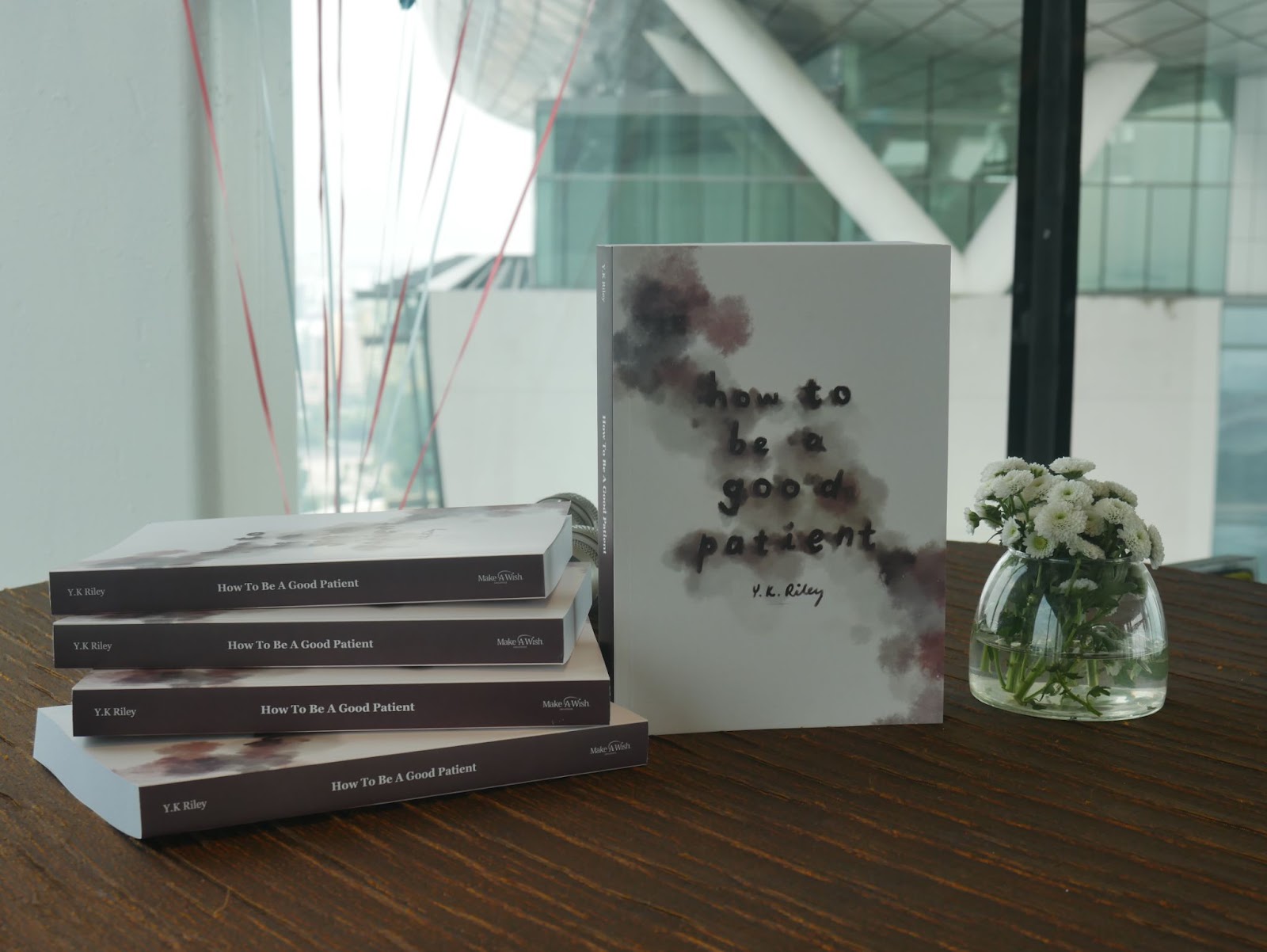
“It started off with just her wishing for a staycation with her dog, because Nicole is a huge animal lover,” says Ms Cho. “But as we asked more questions, we realised that she is very vocal and opinionated, and that she keeps a blog and writes very well.”
Having little resources, Ms Cho ended up roping in her own friends, sisters, and fellow teachers to help with the self-publishing process. They became part-time editors, website and layout designers to prepare for the launch of the 300-page book, titled “How to be a Good Patient”.
Nicole, then 18, was diagnosed with a rare combination of three immune disorders which attack her liver, bile ducts, and colon.
“She mentioned that after this wish, she was much more confident as a person, having finally stepped into the light to talk about her illness openly,” says Ms Cho.
“I think it’s really important for a teenage girl like Nicole because her self-esteem was quite low. The medication she took made her lethargic, but after she published her book, she was invited to talks, and she became an inspiration to her family and the greater community,” she adds.
Ms Cho shares that when children say they want something, there’s often a deeper underlying reason for it.
“For example, if an immobilised child wishes to have a motorised scooter, what he or she actually wants is independence,” she says. “So we can add value to the wish by adding to his or her sense of independence. An example is buying smart lights for the room so the child can turn the lights on and off independently.”
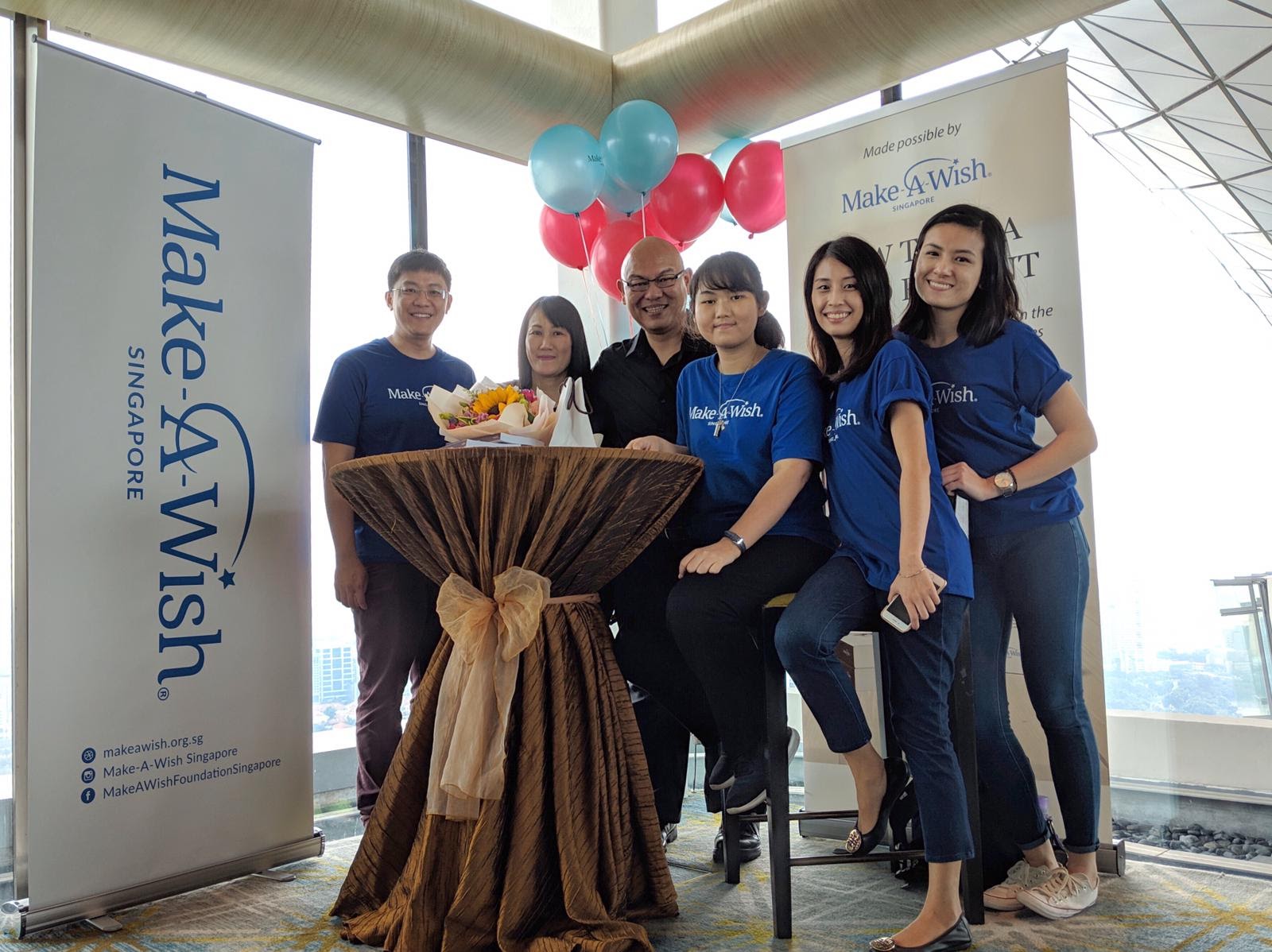
Sherry Soon: A voice for invisible diseases
Having been diagnosed with vasculitis at the age of 19, Sherry Soon, 40, finds that she is able to connect with children diagnosed with either a chronic disorder or a critical illness. Vasculitis is the inflammation of the blood vessels.
Ms Soon has been granting wishes since she was a special needs teacher, but is now running two ground-up movements full-time: Be Kind SG and Autoimmune Diseases Singapore. The former is a Non-Governmental Organisation (NGO) that raises awareness on invisible disabilities and a happier and kinder society, while the latter is an informal support group for Singaporeans diagnosed with autoimmune diseases.
Since 2013, Ms Soon has granted more than 10 wishes. “Medical treatment is a very long journey for both the sick child and the family. I’ve seen the power of a wish, how it brings the whole family together and gives them strength to face the challenges ahead for them,” she says.
In December 2019, she granted a travel wish for Hayes Kerr, a die-hard potterhead. Ms Soon and her team planned his family’s entire trip to the Harry Potter Warner Brothers Studio Tour in London, ranging from a private Muggle tour to visiting the famous Platform 9 ¾ at King’s Cross Station.
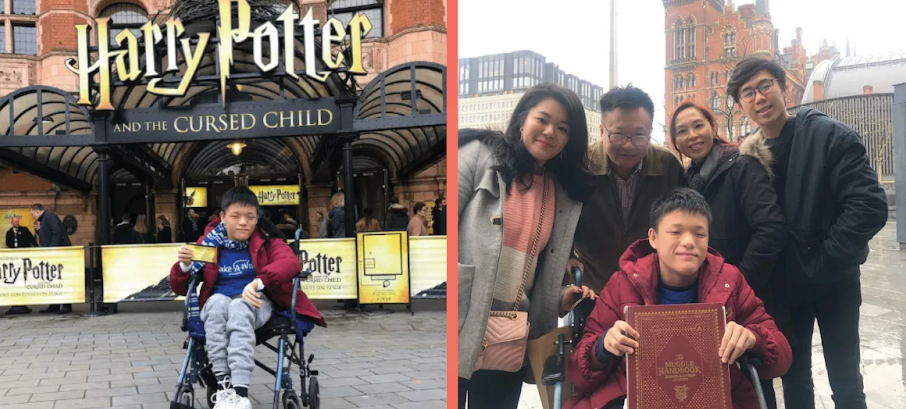
“His family told us that they never thought they’d be able to travel with Hayes Kerr to a country so far away,” she says. Financial resources aside, Hayes Kerr needed a mobility device, which raised a lot of questions about accessibility and travel for his family.
“I think it’s very hard for those of us who have not gone through such experiences in our childhood to imagine the trauma it might involve,” says Ms Soon. “But through the wish-granting process, I’ve realised that children are a lot more resilient than we give them credit for.”
If you wish to volunteer with or donate to Make-A-Wish Singapore, please go to makeawish.org.sg.
Join the conversations on TheHomeGround Asia’s Facebook and Instagram, and get the latest updates via Telegram.

